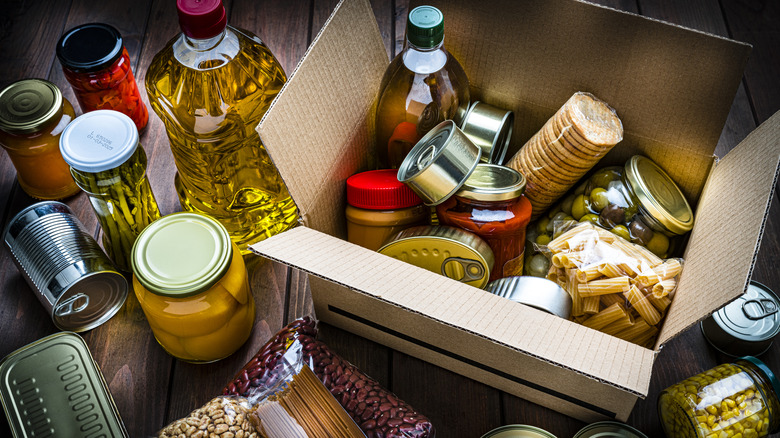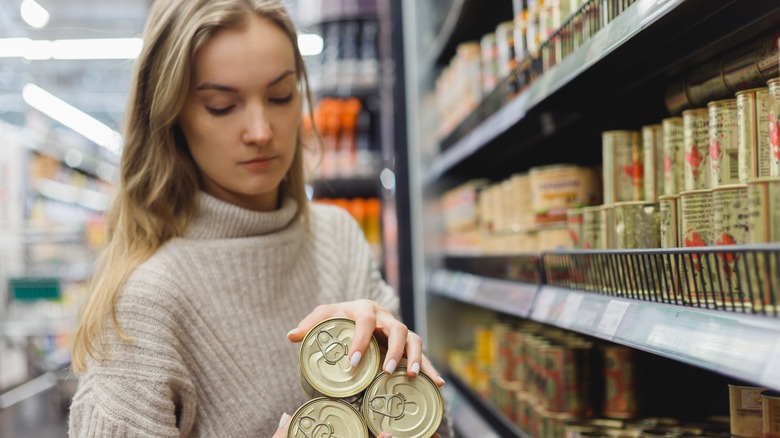How Much Food Do You Really Need To Stock Up On For A Winter Storm?
When it comes to inclement weather, the longstanding Boy Scout motto "Be prepared" sums up the course of action well. We've all seen the mayhem that ensues as panicked people descend on grocery stores and clean out the shelves before a winter storm. On the other hand, a savvy household might prepare months in advance to weather such storms — but how much food do you really need in case a snowdrift piles up at your door?
As a general guideline, you should have enough food and water on hand to last up to two weeks in case of an emergency situation, according to FEMA. A storm may not keep you inside that long, but it's best to be cautious. You should also be adequately stocked with things like fuel for gas-powered cooking devices, and wood and other supplies for fireplaces and wood-burning stoves, which you may need to use for cooking in a power outage.
When purchasing food, it's important to consider the needs of those living in your home. Does anyone have food allergies or gluten intolerance? Do you need to plan out low-carb options for a diabetic? How about stocking up on extra pet food? Thinking through these factors is vital before doing your planning and subsequent shopping. If allergies and other special dietary considerations don't apply, Costco sells ready-made emergency food buckets stocked with entrees and sides that only require reconstitution with water. Similar emergency supply kits are also available elsewhere, and are certainly an easy option.
Store no-cook, no-prep foods in advance
While fresh items like dairy goods and produce need to be purchased closer to the storm's arrival date, you can easily live without these things if you have to. Some staples, like onions and garlic, can be bought far ahead of time, as creative storage helps onions last for months. Things like apples and citrus fruits also keep longer than other produce, and veggies like potatoes and carrots can stay good for weeks. Storing potatoes in a cardboard box happens to be one of the best storage methods.
There are also lots of shelf-stable goods you can buy months ahead that require no refrigeration or cooking, which is ideal when preparing for the uncertain circumstances of a winter storm. Jerky, pudding and gelatin cups, granola bars, applesauce, nut butters, crackers, and dried fruits will stay good for a long time on a pantry shelf. Long-lasting boxed cereals and shelf-stable milks, like boxed coconut, soy, and cow's milk, can ensure your breakfast normalcy goes uninterrupted.
Canned goods should be bought up in abundance, but make sure you also have a manual can opener. It's also perfectly safe to eat commercial canned foods right out of the tin without heating the contents first. Along with plenty of bottled water, packaged juices and soft drinks can also be stored in your emergency supply. And don't forget long-lasting household goodies like cookies, snack cakes, toaster tarts, and candy. Familiar, tasty treats can certainly help to keep up morale when you're snowed in.


